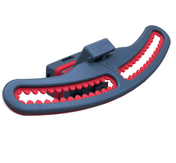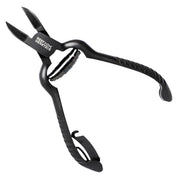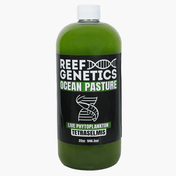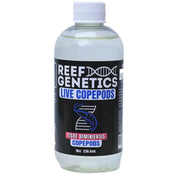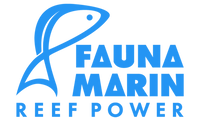Mombasa Dwarf Lionfish
(Pterois mombasae)
WYSIWYG – Approx. Size: 2.75–3.00 Inches
Maximum Size: Up to 6 Inches
The Mombasa Dwarf Lionfish (Pterois mombasae) is a lesser-seen and captivating member of the lionfish family, known for its intricate patterning, elongated pectoral fins, and subtler coloration compared to its more flamboyant relatives. With mottled shades of tan, cream, and reddish brown, it blends into rocky reef structures while maintaining a commanding, exotic presence. Its smaller size and generally calm demeanor make it ideal for nano predator systems or peaceful FOWLR tanks.
Tank Requirements
Minimum Tank Size: 30 gallons
Environment: Plenty of rock caves and shaded overhangs
Flow: Low to moderate
Lid: Required — lionfish are known to jump when spooked
Mombasa Lions prefer subdued lighting and low-traffic tanks with ample retreat areas. They become most active around dawn and dusk.
Natural Behavior
This ambush predator remains motionless for long periods, waiting to strike unsuspecting prey with a lightning-fast gulp. Despite its venomous spines and intimidating look, it is a relatively calm and slow-swimming resident. Mombasa Lions are usually solitary but can be kept with other peaceful predators if provided enough space.
Diet & Feeding
Carnivorous, requiring a protein-rich diet:
-
Live ghost shrimp or feeder shrimp (initially)
-
Frozen mysis, krill, silversides, chopped squid or clam
-
Use feeding tongs to target-feed and avoid spine contact
Feed 3–4 times per week. It may take time to transition to frozen foods after acclimation.
Tankmates & Compatibility
Temperament: Peaceful to semi-aggressive; predatory toward small tankmates
Reef Safe: With caution — will not harm corals but will eat small fish and shrimp
Best With: Larger gobies, wrasses, hawkfish, and non-aggressive tangs
Avoid small ornamental shrimp, nano fish, or fin-nippers. Mombasa Lions do best in predator-friendly systems with calm, confident tankmates.
At Top Shelf Aquatics, we take pride in ensuring your order arrives safely and in perfect condition. Here’s everything you need to know about our shipping process:
Livestock Shipping Details
- Flat Rate Shipping:
- $39.99 Out of State
- $34.99 Florida (In-State)
- Orders over $299 ship FREE!
- NO FREE Shipping during Sale Events
- Shipping Days: The calendar during checkout determines when your livestock order will arrive. Normally we ship Monday - Thursday via FedEx Priority Overnight.
Orders placed by 2 PM EST Monday - Thursday ship the same day. Orders placed after 2 PM or on Fridays will ship the next business day. - Delivery Times: Most packages arrive by 10:30 AM EST, though remote areas may experience later deliveries.
We take every measure to protect your livestock, including specialized packaging to maintain temperature and safety during transit.
Dead on Arrival (DOA) Policy
In the rare event of a DOA, you must submit a DOA Request within 2 hours of delivery (FedEx posted time). Once submitted, we will issue a replacement or store credit for the livestock. Please note:
- Shipping costs are not included in the credit.
- Refunds are not offered for livestock or shipping.
While we cannot be held responsible for delays caused by mechanical or weather issues, rest assured we’ll do everything possible to make it right!
Reef Guard Protection Plan
For ultimate peace of mind, upgrade to our Reef Guard Protection Plan. With Reef Guard, you’ll enjoy:
- Extended Livestock Guarantee: Coverage for up to 5 days.
- Priority Resolutions: Hassle-free claims with fast resolutions.
- Weather & Shipping Delay Coverage: Includes FedEx lost packages and damages.
Shipping Restrictions
- We currently ship livestock only within the continental U.S.
- Note: Due to Hawaii state law, we are unable to ship corals to Hawaii.
Now’s the perfect time to prepare your aquarium for its new additions. Consider doing a water change and ensuring space is ready. Check out our YouTube channel for detailed care instructions for your new corals!
For any questions or concerns, feel free to reach out to our support team. We’re here to help make your reefing journey a success!
5 Day Reef Guard
Temp-Control Box
Priority Overnight
Expert Care Support


